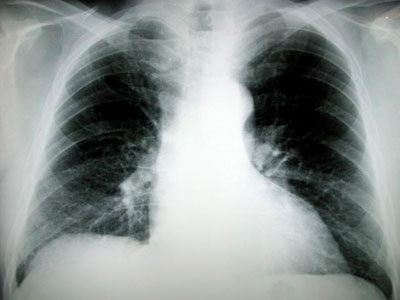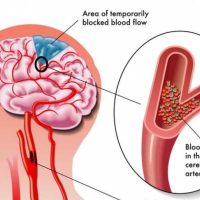 A cough is your body’s reflex to keep the airway clear. The sudden air “explosion” will clear the airway from irritants or obstructive substance so that breathing and the intake of oxygen becomes effective. Coughing is not a disease in itself, but rather a symptom of other disorders. It is a common problem and the reason for many doctor visits.
A cough is your body’s reflex to keep the airway clear. The sudden air “explosion” will clear the airway from irritants or obstructive substance so that breathing and the intake of oxygen becomes effective. Coughing is not a disease in itself, but rather a symptom of other disorders. It is a common problem and the reason for many doctor visits.
Depending on the cause, a cough can be short-term and disappear quickly, such as when a cough occurs after briefly inhaling second-hand smoke. A cough can also occur in sudden, severe episodes, such as a cough that happens with whooping cough. When it doesn’t resolve, by definition in 8 weeks, it is called chronic cough.
Sometimes it is difficult to pin point the actual cause of your cough. It can be related to several conditions at once. It is important to know what other symptoms are associated with the cough to narrow the possible diagnosis.
- Post nasal drip. Normally, the glands in the nose, sinuses, throat produce mucus which cleans and moisturizes the airway and you swallow the fluid without knowing it, but when there is more mucus than usual, caused by allergies, a cold or sinus infection, you may feel it accumulating behind your throat, what is called post nasal drip. The excess mucus can cause irritation and inflammation triggering your cough reflex. The most common cause of chronic post nasal drip are sinusitis.
- Wheezing and shortness of breath. A high pitched sound when you breath is the definition of wheezing. It is most common related to asthma, but other conditions can also cause wheezing. Actually the cause of this high pitched breath sound is due to the narrowing of the airway, in medical term called bronchoconstriction, similar in a condition where a high pressure air passes through a narrow pipeline. While shortness of breath is the feeling of not getting enough air, usually breathing becomes fast and low volumed. May can cause this narrowing, such as allergies (the main process in asthma), inflammation (which happens in bronchitis), or infections.
- Mucus production. A productive cough with green – yellowish mucus can be a sign of infection, ie. pneumonia, bronchitis. A bloody cough can be a sign of bronchiectasis, tuberculosis, lung cancer.
- Acidic taste in mouth. When stomach acid flows back to the esophagus, it can also irritate the throat leading to chough. This condition is called gastro esophageal reflux disease (GERD).
- Leg swelling. This can be a sign of congestive heart failure. Usually the swelling is the preceeding symptom before the cough. When cough develops after leg swelling it can be caused by fluid accumulation in the lungs due to the failure of the heart to pump.
- Medication. Certain medication can also trigger the cough reflex. One notorious medication with this common side effect is Captopril.
- Chest pain. It can be a sign of infection or involvement of the pleura, the thin layer surrounding the lung and rib cage. Usually due to infection, either bacterial or viral infection.
- There are many other possible symptom which will help your doctor determine the next step for diagnosis or treatment.
In general the most common causes for chronic cough are:
- Sinusitis
- Bronchitis
- GERD
- Asthma
- And the most common of all is cigarette smoking
After taking a thorough history taking and physical examination your doctor might order some tests, ie. chest x-rays, blood test, etc.
Treatment of a cough involves diagnosing and treating the underlying disease, disorder or condition that is causing it. Some conditions can be easily and successfully treated and cured, while others may require more intensive treatment and may not have an optimal prognosis.
Some common medications you might get from your doctor to relieve the cough symptom are:
- Anti–histamines and decongestants. Anti-histamines and decongestants are usually given in combination as the standard treatment for allergies and post-nasal drip. Older, sedating anti-histamines may be more effective in treating cough than the newer generation of drugs that don’t make you drowsy.
- Inhaled corticosteroids. These anti-inflammatory drugs are the most effective treatment for asthma and asthma-related cough, but the use of inhaled bronchodilators may also be required. Long-term use of corticosteroids may increase the risk of skin thinning, bruising, osteoporosis and cataracts.
- Medications to treat acid reflux. When lifestyle changes don’t take care of acid reflux, you may be treated with a proton pump inhibitor, which blocks acid production and allows esophageal tissue time to heal.
- Other treatments. When the reason for your cough isn’t known, your doctor may prescribe a cough suppressant or a type of medication that relaxes the air passages in your lungs.
- You are also advised to stop smoking or avoid smoked areas.
Though the chronic cough rarely is a medical emergency, the rule of thumb is whenever your cough doesn’t get better in 4 weeks, you should see a doctor. Follow your doctor’s instruction and don’t be reluctant for a follow up, since chronic conditions commonly will require you to have more than one visit to the doctor.











